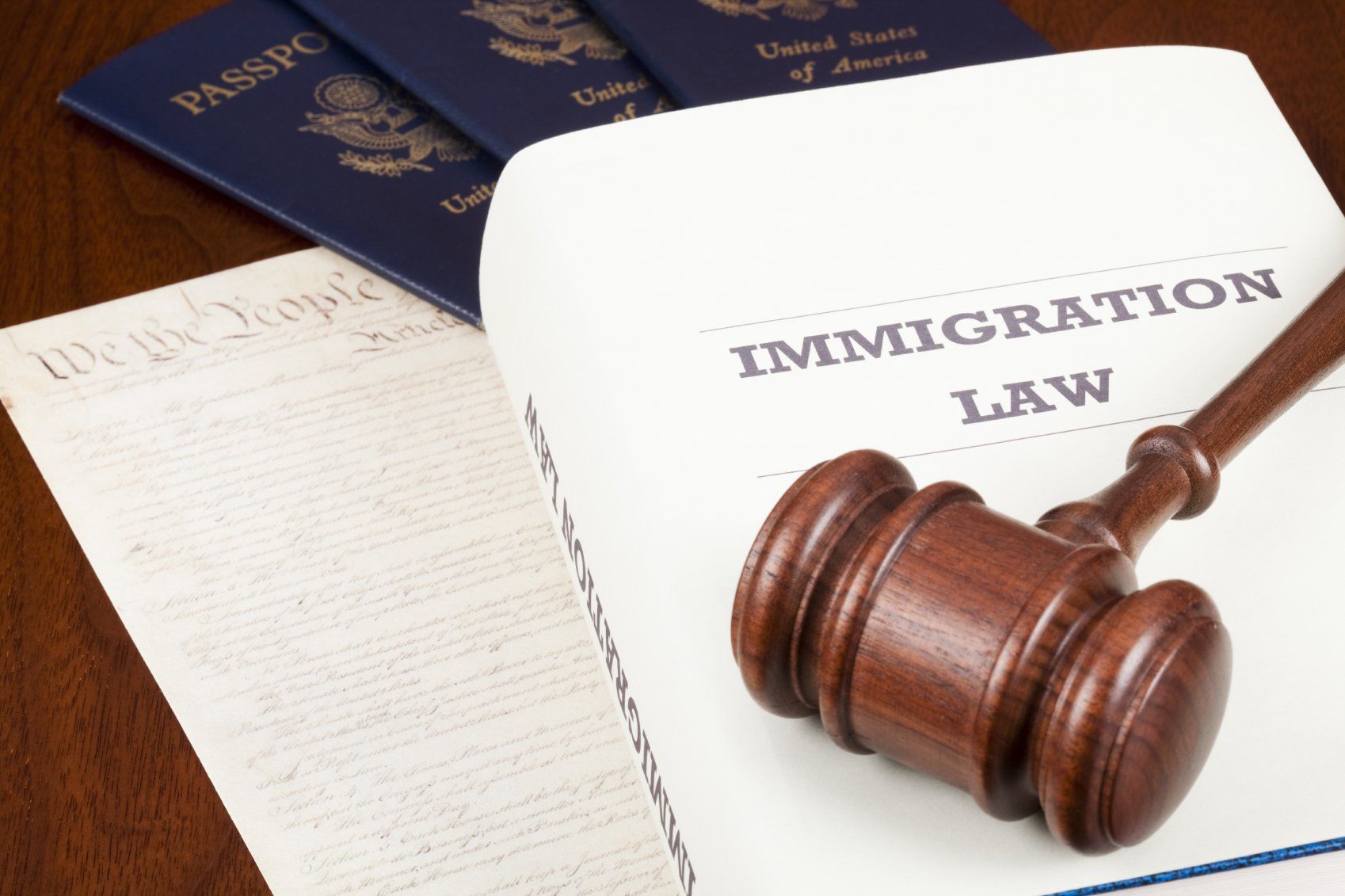Public and defense procurements under CETA

The CETA allows Canadian companies to access European markets under the same conditions as European economic operators.
However, derogations are provided for contracts related to the fields of security and defense.
Thus, according to Article 19.3 of the agreement
:
" Nothing in this Chapter shall be construed to prevent a Party from taking any action or from not disclosing any information that it considers necessary for the protection of its essential security interests relating to the procurement:
(a) of arms, ammunition or war material;
(b) or to procurement indispensable for national security; or
(c) for national defence purposes"
A note to Annex 19-B of the treaty
listing central government entities also provides that " As far as procurement by entities in the field of defence and security is concerned, only non-sensitive and non-warlike materials contained in the list attached to Annex 19-4
are covered.
" by the treaty provisions.
In other words, contracts related to the fields of security and defense involving non-sensitive and non-military goods listed in Annex 19-4 cannot be subject to the exception in Article 19.3.
In summary, the security and defence exemption is limited to a small number of contracts.
Canadian companies can therefore bid for contracts in the field of security and defence involving goods listed in Annex 19-4 of the Treaty under the same conditions as European economic operators.
The same applies to the many contracts in security and defence related fields that are not covered by the provisions on security and defence procurement.
When prospecting for tenders, the Canadian company must ensure that the contract will not fall within the scope of the exception provided for in Article 19.3 of the CETA, i.e. that it is not a security and defence contract.
In order to do so, we must refer to the European definition of security and defence procurement (1).
The identification of this type of contract depends on the person who concludes it (2) as well as on its object (3).
If the conditions apply, it will be necessary to check that the public entities are not making use of the derogation provided for in article 19.3 by implementing the European preference (4).
1. The concept of security and defence procurement
The definition of a security and defence contract is derived from the European Directive of 13 July 2009 on the coordination of procedures for the award of certain works contracts, supply contracts and service contracts by contracting authorities or entities in the fields of defence and security (2009/81/EC) and is transposed into French law in article L1113-1 of the Public Procurement Code.
A defense or security contract is "a contract concluded by the State or one of its public establishments and having as its object :
1° The supply of equipment, including their spare parts, components or sub-assemblies, which are intended to be used as weapons, munitions or war material, whether they were specifically designed for military purposes or were initially designed for civilian use and then adapted for military purposes ;
2° The supply of equipment intended for security purposes, including their spare parts, components or sub-assemblies, and which involve, require or contain protected or classified media or information in the interests of national security;
3° Works, supplies and services directly related to equipment mentioned in 1° or 2°, including the supply of tools, testing means or specific support, for all or part of the life cycle of the equipment. For the application of this paragraph, the life cycle of the equipment is the whole of the successive states that it can undergo, in particular research and development, industrial development, production, repair, modernization, modification, maintenance, logistics, training, tests, withdrawal, dismantling and elimination;
4° work and services with specifically military purposes or work and services for security purposes that involve, require, or include protected or classified media or information in the interest of national security."
2. The authorities competent to award a security and defense contract
According to article L1113-1 of the Public Procurement Code, security and defense contracts are contracts awarded by the State or one of its public institution.
Local authorities are therefore not concerned by the provisions on security and defense contracts.
3. The purpose of security and defense contracts
Article L1113-1 of the Public Procurement Code limits to four the subjects on which security and defence contracts may be awarded. This list is strictly interpreted by European and French judges.
According to the case law, the qualification of security and defense contract is retained only when the military purpose of the product and services is characterized.
Thus, the purchase of semi-automatic pistols for administrative police missions (police at sea) cannot be considered as a security and defense contract. (CE, December 18, 2019, Minister of the Ecological and Solidarity Transition v. Société Sunrock).
See for example a contract for the purchase of ammunition
by the Ministry of the Interior for the national police, customs and prison administration.
The same applies to the purchase of helicopters "the use of which for military purposes is not very certain". (ECJ 8 Apr. 2008, Commission v. Italy)
Furthermore, guarding, reception and screening services for military sites are not considered as a security and defense contract either, as the service providers do not have access to any classified information in the interest of national security (CE 4 February 2021 - Ministère des Armées c. sté Osiris Sécurité Run)
On the other hand, this qualification will be retained for aeronautical upholstery services on military aircraft, in particular on fighter planes. As this contract concerns war material, it is therefore a defense and security contract. (CE, May 24, 2017, Minister of Defense v. Société Techno Logistique).
4. European preference
Pursuant to Article 19.3 of CETA, European contracting authorities may still be able to exercise the European preference provided for security and defense contracts.
This provision will appear in the contract notices according to this formulation:
"Economic operators from countries outside the EU or EEA:
In accordance with Article R 2342-7 of the Public Order Code, this procedure is not open to economic operators from countries outside the European Union or the European Economic Area."
If you would like further information on public procurement, please contact our team.

En tant que membres de l'Union Européenne, les Pays baltes suivent les procédures des marchés publics européens comme tous les autres États membres de l'Union européenne.
L'Accord économique et commercial global (AECG) entre le Canada et l'Union européenne offre aux entreprises canadiennes un égal accès aux marchés publics des pays baltes que leurs concurrents européens.
Les marchés des pays baltes couverts par l'AECG constituent de vrai opportunités d'affaires pour les entreprises.
I. Le développement des pays baltes grâce aux Marchés publics européens
II. Le renouvellement constant des appels d'offres et la diversité des secteurs d'activité concernés

Qu'est ce qu'une offre anormalement basse ?
L’article L. 2152-5 du code de la commande publique français définit l’offre anormalement basse comme celle « dont le prix est manifestement sous-évalué et de nature à compromettre la bonne exécution du marché ».
Comment le candidat peut justifier du montant de son offre ?
L’article R. 2152-3 du code de la commande publique français donne des exemples non limitatifs de justifications.
Quelles procédures pour contester la décision décidant d'écarter l'offres présentée au motif de son caractère anormalement bas ?
Trois types de recours différents peuvent être utilisés. La procédure de référé pré-contractuel est toutefois la plus utilisée, car elle s’exerce avant la signature du contrat.
Quels moyens invoquer pour contester le rejet de son offre ?
Trois moyens sont couramment utilisés afin de contester la décision rejetant l'offre présentée au motif de son caractère anormalement bas.

La liste des produits et prestations (LPP) contient l’ensembles des produits, soins et actes médicaux qui sont remboursés par l’assurance maladie française. L’article L. 165-1 du Code de la Sécurité social e prévoit que : « L e remboursement par l'assurance maladie des dispositifs médicaux à usage individuel, des tissus et cellules issus du corps humain quel qu'en soit le degré de transformation et de leurs dérivés, des produits de santé autres que les médicaments visés à l'article L. 162-17 et des prestations de services et d'adaptation associées est subordonné à leur inscription sur une liste établie après avis d'une commission de la Haute Autorité de santé mentionnée à l'article L. 161-37. » L’inscription sur la liste des produits et prestations remboursables (LPPR) prévue à l ’article L.165-1 du code de la sécurité sociale résulte d’une décision du Ministre chargé de la Sécurité sociale et du Ministre chargé de la Santé après avis de la Commission nationale d’évaluation des dispositifs médicaux et des technologies de santé (CNEDiMTS). Pour pouvoir obtenir l’inscription sur la LPP, il faut présenter un dossier de demande selon une procédure spécifique (I). De plus, le dossier doit contenir des éléments qui permettront à l’administration de prendre la décision (II). Pour finir, les juges sont amenés à interpréter les critères légaux de l’inscription sur la LPP (III). I) Le dépôt de la demande d’inscription Le dossier de dépôt auprès du CNEDiMTS est dématérialisé et se fait via la plateforme SESAME. Pour déposer un dossier, il faut commencer par créer un compte d’accès avec le formulaire correspondant dont deux personnes maximum pourront avoir accès. Ce seront les gestionnaires de compte. Pour créer ce compte, il faut le numéro de SIRET de l’entreprise et de l’attestation signée par son représentant légal donnant délégation aux personnes mentionnées pour être «gestionnaire de compte ». Le dossier de demande d’inscription doit comporter trois parties : Partie 1 : synthèse et identification de la demande ; Partie 2 : dossier médico-technique ; Partie 3 : dossier économique ; Les parties 1 et 2 qui comporte l’identification de la demande et le dossier « médico-technique » doivent être déposées auprès du CNEDiMTS via la plateforme SESAME, lequel va rendre un avis consultatif. Simultanément, il faudra déposer la totalité de la partie économique , directement au Comité économique des produits de santé (CEPS) qui va fixer un prix et un tarif. Il faudra s’acquitter d’une taxe 3220 euros. II) Le contenu de la demande d’inscription A) Les pièces composant le dossier 1/ L’identification de la demande : Pour identifier la demande d’inscription à la LPP, il faudra renseigner : Le demandeur : c’est le fabricant, mandataire ou prestataire, le correspondant unique ou encore le signataire de la convention éventuelle avec le CEPS. Les enseignements administratif s comme le marquage CE par exemple. Le type de la demande , c’est à dire si c’est une inscription, une modification ou un renouvellement. Le produit ou la prestation concerné : si cela concerne un produit ou un produit associé à une prestation. 2/ Le dossier médico-technique : Le dossier médico-technique qui est exigé comprend généralement : Les i nformations descriptives du produit avec des caractéristiques techniques. Une description du mode d’action sur la pathologie ou le handicap. En cas d’utilisation du dispositif médical, il faut une description des actes, prestations et aspects organisationnels associés. Une identification et sélection des données cliniques disponibles, c’est à dire une recherche documentaire systématisée, mais aussi une étude post-inscription. Une d émonstration du service attendu et rendu revendiqué par le demandeur avec l’intérêt du produit, la pathologie concernée, les alternatives thérapeutiques ou de compensation du handicap actuel, une analyse des données disponible et qualité de la démonstration, les études en cours, la place du produit dans la stratégie thérapeutique. Le dossier médico-technique doit également contenir : Une partie « intérêt de santé publique » , avec la transportabilité des résultats des essais à la pratique, les impacts potentiels sur la santé de la population, les impacts prévisibles sur l’organisation des soins, les impacts prévisibles sur les politiques et programmes de santé publique. Une partie sur les propositions du demandeur sur les conditions de prescription et d’utilisation. Une partie sur la démonstration de l’amélioration du service attendu et rendu. une partie « population cible » qui est la population susceptible de bénéficier du produit ou de la prestation. Plus précisément, il faut faire une estimation quantitative pour chaque indication. Il est demandé de faire apparaître le raisonnement étape par étape : La population correspondant aux pathologies visées La proportion de patients diagnostiqués La proportion de patient susceptible d’être pris en charge La proportion de patients susceptible d’être concerné par le dispositif médical. En plus de cela, il est demandé un tableau de synthèse des données matériovigilance issue de la France et de l’international sur une période de 5 ans, ainsi qu’une Annexe qui rassemble les données cliniques sur lesquelles repose l’argumentaire et le sommaire des documents généraux joints à la demande. 3/ Le dossier économique : Le dossier économique est composé de la manière suivante : Pour les dispositifs médicaux non génériques : Il faut 10 clés USB et une version papier. le contenu des fichiers de caque clé USB continent une lettre de demande d’autorisation de mise sur le marché et ses rectificatifs, dossier économique, dossier de transparence, annexe éventuelles et bibliographie. Pour les dispositifs médicaux génériques : Il faut 8 clés USB et une version papier. Le contenu des fichiers de chaque clé USB contient une lettre de demande d’autorisation de mise sur le marché et ses rectifications et une fiche de demande de prix B) Les conditions de fond à remplir L' article R165-2 du code de la sécurité sociale prévoit que pour pouvoir être inscrit sur la liste, le service attendu du produit ou de la prestation doit être évalué « en fonction des critères suivants : 1° L’intérêt du produit ou de la prestation au regard, d'une part, de son effet thérapeutique, diagnostique ou de compensation du handicap ainsi que des effets indésirables ou des risques liés à son utilisation, d'autre part, de sa place dans la stratégie thérapeutique, diagnostique ou de compensation du handicap compte tenu des autres thérapies ou moyens de diagnostic ou de compensation disponibles ; 2° Son i ntérêt de santé publique attendu , dont notamment son impact sur la santé de la population, en termes de mortalité, de morbidité et de qualité de vie, sa capacité à répondre à un besoin thérapeutique, diagnostique ou de compensation du handicap non couvert, eu égard à la gravité de la pathologie ou du handicap, son impact sur le système de soins et son impact sur les politiques et programmes de santé publique. Les produits ou prestations dont le service attendu est insuffisant pour justifier l'inscription au remboursement ne sont pas inscrits sur la liste . » III) L’interprétation des critères légaux par la Haute juridiction administrative française Dans un arrêt du 31 décembre 2019 (n° 420255) , la Haute juridiction indique que n’est pas « automatiquement inscrit sur la liste des produits et prestations remboursable tout dispositif médical dont le dossier comprendrait les données ayant permis l'obtention du marquage CE » . Dans un arrêt en date du 24 juillet 2019 (n° 419447) , la Haute juridiction juge s’agissant du critère concernant « l’intérêt de santé publique » qu’ « un effet symptomatique faible » du dispositif médical ne suffit pas pour justifier son inscription au remboursement. De la même manière, la Haute juridiction juge que l’avis de la CNEDiMTS qui « a estimé que le service attendu de ce dispositif était suffisant pour l’inscription sur la liste des produits et prestations mentionnée à l’article L.165-1 pour trois ans, tout en jugeant l’amélioration du service attendu mineure » ne permet pas de justifier l’inscription sur la liste des produits et prestations remboursables. (Arrêt du 06/05/2019, n°415410) . Si vous souhaitez présenter une demande d'inscription pour l'un de vos produits ou prestations en France, contactez notre équipe .

Pour venir étudier en France, les étudiants canadiens bénéficient de l’accord franco-canadiens de 2015 (I). Et, depuis 2021 le Canada fait partie de la plateforme « Etudes en France » qui est un service en ligne regroupant toutes les démarches et simplifiant la procédure (II). Enfin, les étudiants canadiens peuvent renouveler leur titre de séjour (III). I) L’accord franco-canadien relatif à la mobilité des jeunes du 7 janvier 2015 Cet accord du 7 janvier 2015 a été créé pour simplifier et faciliter les procédures administratives à destinations des jeunes canadiens et des jeunes français. Il s’applique à toute personne âgée de 18 et 35 ans. Cet accord prévoit 4 catégories de jeunes ressortissants : Les jeunes professionnels, souhaitant se rendre en France dans le cadre d'un perfectionnement professionnel au moyen d'une expérience de travail salarié sous couvert d'un contrat de travail à durée déterminée. Les étudiants canadiens souhaitant accomplir une partie de leur cursus universitaire dans un établissement français dans le cadre d'un accord interuniversitaire. Les étudiants ou jeunes en formation, inscrits dans un établissement d'enseignement secondaire ou supérieur ou dans un centre de formation, souhaitant accomplir en France un stage pratique en lien avec leur cursus d'études ou de formation. Les jeunes désireux d'effectuer un séjour de découverte touristique et culturelle en France et souhaitant y travailler occasionnellement pour compléter leurs ressources financières. Les pièces à produire à l'appui de la demande de séjour sont : Un passeport canadien dont la date d'expiration dépasse de six mois la date de fin de séjour prévue en France un formulaire de demande daté et signé une photographie d’identité une carte d’étudiant avec une copie recto-verso une lettre d’acceptation de l’établissement universitaire d’origine et celui d’accueil une preuves de ressources suffisantes pour le début du séjour Cet accord met en avant « une facilité » des procédures pour obtenir un visa étudiant, mais en pratique, il faut passer par la procédure normale pour avoir un visa. (II) II) Depuis 2021, le Canada intègre la plateforme Études en France Pour obtenir un visa afin de venir étudier en France, il faut avoir 18 ans, avoir choisi une formation ou un cursus d’étude et être accepté par un établissement d’enseignement supérieur. Le portail étude en France a été mis en place pour faciliter les démarches de pré-inscription de plus de 280 universités et écoles en France et aider à faire la demande de visa. Depuis 2021 le Canada en fait partie. L'inscription sur Etudes France ne permet pas à l’étudiant de s'affranchir des démarches à effectuer auprès des autorités françaises au Canada pour acquérir le visa lui permettant seul de venir en toute légalité sur le territoire français . Deux types de visas concernent plus particulièrement les étudiants : Le visa de court séjour s’adresse aux étudiants qui ont une formation de moins de 3 mois (A) au contraire du visa de long séjour qui permet de rester en France entre 3 mois et 1 an. (B) A) Le visa pour les séjours de courte durée Il recouvre deux catégories : Visa de court séjour « étudiants concours » : il permet aux étudiants non-européens de venir en France pour passer un concours ou un entretien d’admission dans un établissement de l’enseignement supérieur. Il ne peut être délivré que si le résultat du concours ou de l’entretien est connu dans les 3 mois. Pour faire la demande de visa, il faut se tourner vers l’ambassade ou le consulat du pays. Visa Schengen court séjour : il permet de séjourner dans un pays de l’espace Schengen pour une durée de 90 jours maximum : le motif d’une formation courte permet de se voir accorder le visa. Cependant, les ressortissants de nombreux pays sont dispensés de visa Schengen court séjour pour entrer et séjourner dans les pays de l’espace Schengen dans une limite de 90 jours. C'est le cas pour le Canada. Si à la fin de date de validité du visa de court séjour, l’étudiant étranger a réussi un concours d’entrée dans une école, il n’est alors pas obligé de passer par un « VLS-TS étudiant ». Dans ce cas, il peut directement demander une carte de séjour étudiant en préfecture. B) Le visa pour les séjours de longue de durée 3 catégories sont visées par ce type de visa : Le VLS-TS étudiant : il permet aux étudiants de venir en France pour une période de 4 mois à 1 an pour effectuer des études supérieures. Il permet de voyager librement dans tous les pays de l’espace Schengen. Il permet aussi de travailler 964 heures par an, soit 20 heures par semaine, pour compléter ses ressources. Ce visa permet de bénéficier de VISALE (la caution locative étudiante gratuite) et de recevoir une allocation logement de la Caisse d'allocation familiale (CAF). Ce visa permet de prolonger son séjour au-delà de la durée de validité du titre de séjour. Le VLS-T étudiant : il permet de séjourner en France de 4 à 12 mois. Il permet de voyager librement dans tous les pays de l’espace Schengen. Il permet d’avoir accès à la sécurité sociale. Ce visa ne se valide pas en préfecture à l’arrivée, mais il ne permet pas de travailler pendant ses études. De plus, ce visa ne permet pas de bénéficier de VISALE, ni de l’allocation logement de la CAF. Ce visa ne permet pas de prolonger son séjour au-delà de la durée de validité du titre de séjour. Le Visa long séjour mention stagiaire : ce visa permet de séjourner en France pour une durée de plus de 3 mois en raison d’un stage. Ce stage doit être effectué dans le cadre d’une formation professionnelle et se dérouler au sein d’une entreprise ou d’un hôpital public. Il doit être validé auprès de l’office française de l’immigration et de l’intégration dès l’arrivée sur le territoire. Pour ce visa, il faut une convention de stage tripartite visée par le préfet et signée entre l’étudiant, l’employeur et votre établissement de formation. III) La carte de séjour pluriannuelle mention "étudiant" Après un an en France, l'étudiant peut demander une carte de séjour pluriannuelle mention "étudiant". La carte est délivrée pour une durée égale à la durée restant à courir du cycle d'étude. Il devra justifier du caractère réel et sérieux des études suivies : assiduité résultats aux examens diplôme obtenu explication en cas de changement de cursus Si vous souhaitez venir étudier en France, nous pouvons vous accompagner dans vos démarches auprès des autorités françaises ainsi que pour tout problème rencontré en France. Contactez notre équipe

L’Union européenne (UE) met en place des programmes qui viennent au soutien des entreprises (I). Ces programmes bénéficient en priorité aux petites et moyennes entreprises (PME) qui sont le moteur de l’économie européenne (II) . I) La définition européenne de la PME A. La Commission européenne définit l’entreprise « comme toute entité, indépendamment de sa forme juridique, exerçant une activité économique » Le facteur primordial est l’activité économique et non la forme juridique. Ceci signifie que les travailleurs indépendants, les partenariats et les associations régulièrement impliquées dans une activité économique peuvent être considérés comme des entreprises. B. Pour être qualifiée de PME, 3 critères doivent être remplis : Emploie de moins de 250 personnes Chiffre d’affaires annuel ne dépassant pas 50 millions d’euros ( article 28 de la directive 78/660/CEE du Conseil du 25 juillet 1978 fondée sur l’article 54, paragraphe 3, point g ), du traité et concernant les comptes annuels de certaines formes de sociétés ( JO L 222 du 14.8.1978, p. 11 ) ou total du bilan annuel n'excédant pas 43 millions d’euros (article 12, paragraphe 3, de la directive 78/660/CEE, chapitre 2 ). Les calculs des seuils sont différents pour chacune des trois catégories d’entreprise suivantes : entreprise autonome, entreprise partenaire et entreprise liée. C. Parmi les PME, on distingue en effet trois catégories d’entreprises différentes : L’entreprise autonome : c’est celle qui est totalement indépendante ou a conclu un ou plusieurs partenariats minoritaires (moins de 25 % chacun) avec d’autres entreprises. L’entreprise partenaire : l’entreprise détient une participation égale ou supérieure à 25 % du capital ou des droits de vote d’une autre entreprise ou bien une autre entreprise détient une participation égale ou supérieure à 25 % dans l’entreprise visée. L’entreprise liée : si les participations avec d’autres entreprises dépassent le seuil de 50 %, les entreprises sont considérées comme liées. Une filiale filiale, société dont le capital est possédé pour plus de 50 % par une autre société, est donc une société liée. Le résultat du calcul des seuils déterminera si l’entreprise respecte la définition européenne de la PME et donc si elle est accessible aux aides européennes propres aux PME. Vous souhaitez en connaître plus sur le statut de PME européenne, les critères et les seuils à vérifier, les données à prendre en considération, le décompte des effectifs, et comment calculer les seuils suivant trois catégories d’entreprise, n’hésitez pas à nous contacter II) T ro is exemples de financements européens A. COSME : le programme pour la compétitivité des PME et Entreprises Ce programme intervient pour le développement de la compétitivité ainsi que pour le développement durable des entreprises européennes. Pour la période 2021/2027, le budget est à hauteur de 4.2 milliards d’euros dont 60 % est distribué à travers d’instruments financiers. Ce programme comprend 4 objectifs : Un accès aux financements : facilités de « capital-risque » et de « garanties prêts ». Un accès au marché de l’Union européenne : services d’appui et de conseil aux entreprises avec par exemple le développement de la coopération de politique industrielle. Une amélioration des conditions-cadres pour la compétitivité. Une promotion de l’entreprenariat et de la culture entrepreneuriale : par exemple le programme Erasmus pour les jeunes entrepreneurs. Ce programme s’adresse aux 27 états-membres de l’Union européenne, mais aussi aux pays tiers . Il s’adresse aux entrepreneurs, aux entreprises, aux PME, aux organisations de soutien aux entreprises, mais aussi aux intermédiaires financiers. A titre d’exemple, le groupe belge Technopolis , société de conseil pour l'évaluation de la science, de la technologie et de l'innovation. Le groupe a bénéficié de 11.33 millions d’euros. B. Le programme Horizon Europe au nom de la recherche et du développement Le programme Horizon Europe finance principalement des projets collaboratifs de recherche, de développement et d’innovation dans des domaines comme les technologies générique et industrielle, mais aussi dans les défis sociétaux (santé, sécurité alimentaire, les énergies propres...). Ce programme peut aussi financer des projets plus spécifiques comme « l’instrument PME » pour permettre à ces dernières de se développer plus facilement sur le marché lorsqu’elles ont un projet de produits ou de services capable de stimuler la croissance. Horizon Europe offre des subventions pour les entreprises avec un taux de cofinancement qui s’élève à hauteur de 70 % maximum. On peut souligner l’exemple du consortium composé de cinq partenaires universitaires et privés européens et de la société canadienne Sernov a . Il s 'agit une société de médecine régénératrice qui développe des technologies thérapeutiques. Elle a reçu 940 000 euros de la part du programme Horizon 2020 en 2015 pour financer le développement d'un produit thérapeutique contre l'hémophilie. C. Europe créative Le programme Europe Créative se divise en 3 volets. Le premier volet porte sur la « culture » avec par exemple le développement de plateformes européennes. Le second volet porte sur l’aspect « média » qui lui concerne l’industrie du cinéma, de l’audiovisuel et du jeu vidéo. Il soutient financièrement le développement, la distribution et la promotion de projets portés par des professionnels européens. Le dernier volet est trans-sectoriel et facilite la collaboration entre les secteurs de la création. Ce programme dispose d'un budget de 2,44 milliards d'euros pour la période 2021-2027, et par exemple la société française DK-BEL , en collaboration avec la compagnie grec Quasi-Stellar et la compagnie chypriote Pelma ont bénéficié d’un financement à hauteur de 199 990 euros pour un spectacle de danse sous l’eau avec un public en immersion. Il existe d'autres soutiens européens. Nous vous accompagnons pour définir précisément vos besoins d’aides européennes. Contactez notre équipe pour préparer votre soumission .

Le groupement d'entreprises est une association momentanée d'entreprises afin d'élaborer une offre commune pour exécuter un marché public. Il n’est pas dotée de la personnalité morale, et chaque membre du groupement a la qualité de cotraitant. Il n'existe que pour une durée limitée à la durée du marché public à exécuter, d'où les termes de groupement momentané d'entreprises (GME). La code de la commande publique française prévoit en son article R 2142-20, deux formes de groupement d’entreprises. “ Le groupement est : 1° Conjoint lorsque chacun des opérateurs économiques membres du groupement s’engage à exécuter la ou les prestations qui sont susceptibles de lui être attribuées dans le marché ; 2° Solidaire lorsque chacun des opérateurs économiques membres du groupement est engagé financièrement pour la totalité du marché. ” Dans les deux cas, la conclusion d’une convention de groupement constitue une sécurité juridique dans les relations entre partenaires, même si aucune disposition légale n’en impose la conclusion. La convention fixe les règles régissant les relations entre les entreprises qui veulent se présenter en groupement aux marchés publics. I - Une liberté d’établissement de l’acte par les cocontractants La convention de groupement d’entreprises est un contrat de droit privé. Ce contrat définit les obligations de faire ou de ne pas faire des entreprises voulant se grouper entre-elles, et sera subordonné à l’obtention du marché visé par le groupement. Un mandataire commun chargé d’échanger et de faire le lien avec l’acheteur public devra être désigné par les membres du groupement. Les opérateurs économiques ont le droit de déterminer librement les dispositions du contrat sous réserve de ne pas déroger aux règles qui intéressent l'ordre public. Le contrat peut être matérialisé par acte d’avocat (écrit électronique ou sur support papier) afin de lui garantir une force probante renforcée en application de l’article 1374 du code civil. L’article 1374 du Code civil dispose : « L'acte sous signature privée contresigné par les avocats de chacune des parties ou par l'avocat de toutes les parties fait foi de l'écriture et de la signature des parties , tant à leur égard qu'à celui de leurs héritiers ou ayants cause. La procédure de faux prévue par le code de procédure civile lui est applicable. Cet acte est dispensé de toute mention manuscrite exigée par la loi ». II - Inopposabilité de la convention de groupement au donneur d’ordre public : Comme nous l’avons vu, la convention de groupement est un contrat de droit privé signé entre au moins deux entreprises, peu importe leur forme juridique (entreprise individuelle ou société). L’acheteur public le maître de l’ouvrage « n’ayant pas été signataire de la « convention de groupement solidaire " conclue entre eux, l’annexe 2 qui fixe la répartition des missions entre les membres de la maîtrise d’oeuvre ne lui était pas opposable. ». C’est ce que rappelle la Cour administrative d’appel de Lyon dans un arrêt du 14 janvier 2021 après avoir constaté que « les deux membres du groupement de maîtrise d’oeuvre se sont engagés solidairement vis-à-vis du maître de l’ouvrage. » ( Cour administrative d’appel de Lyon, 14 janvier 2021, n° 18LY02917, Inédit au recueil Lebon ) . Dès lors que les entreprises ont soumissionné en la forme d’un groupement solidaire, peu importe par la suite qu’un retard dans l’exécution du marché soit du à une seule des entreprises : chaque entreprise est engagée financièrement pour la totalité du marché public en sa qualité de membre du groupement solidaire. Attention à la forme du groupement adopté et au contenu de la convention de groupement, deux questions cruciales à résoudre pour candidater dans de bonnes conditions et mettre toutes les chances de succès de son côté. III/ Quel est l’ordre de juridiction compétent pour connaître du litige entre membres d’un groupement attributaire du marché public ? Juge judiciaire ou juge administratif ? Dans un arrêt du 08 février 2021, le Tribunal des conflits ( TC, 8 février 2021, Société Fayat Bâtiment c/ Société Pro-Fond et autres, n° 4203, B ) , a récemment rappelé le principe suivant lequel « Le litige né de l'exécution d'un marché de travaux publics et opposant des participants à l'exécution de ces travaux relève de la compétence de la juridiction administrative, sauf si les parties sont unies par un contrat de droit privé » . Dans cette affaire, « Les sociétés Fayat Bâtiment et Pro-Fond, membres d'un même groupement titulaire d'un marché de travaux publics , ont l'une et l'autre poursuivi la responsabilité quasi-délictuelle de leur co-traitant et présenté des conclusions tendant à la condamnation de celui-ci à réparer le préjudice qu'elles estiment avoir subi à raison de fautes qu'il a commises au cours de l'exécution du contrat conclu avec le maître de l'ouvrage ». Le Tribunal des Conflits estime qu’ « Alors même que les deux co-traitants sont par ailleurs liés par un contrat de droit privé, un tel litige, qui ne concerne pas l'exécution de ce contrat de droit privé et qui implique que soient appréciées les conditions dans lesquelles un contrat portant sur la réalisation de travaux publics a été exécuté, relève de la juridiction administrative » . En 2015, le Tribunal des Conflits avait déjà jugé que « lorsque le juge administratif est saisi d’un litige né de l’exécution d’un marché de travaux publics opposant le maître d’ouvrage à des constructeurs qui ont constitué un groupement pour exécuter le marché, il est compétent pour connaître des actions en garantie engagées par les constructeurs les uns envers les autres si le marché indique la répartition des prestations entre les membres du groupement ; si tel n’est pas le cas, le juge administratif est également compétent pour connaître des actions en garantie entre les constructeurs, quand bien même la répartition des prestations résulterait d’un contrat de droit privé conclu entre eux, hormis le cas où la validité ou l’interprétation de ce contrat soulèverait une difficulté sérieuse » ( Tribunal des conflits, 9 février 2015, 15-03.983 ) Si vous voulez établir une convention de groupement momentané d’entreprises contacter LEGAL AECG | LEGAL CETA. Olivier Descriaux, Avocat

Par un arrêt du 18 décembre 2020, Le Conseil d’État a jugé que l’offre irrégulière et non régularisable d’un candidat évincé fait obstacle à toute indemnisation du préjudice lié à la perte de chance d’obtenir le marché (CE 18 déc. 2020, Sté Architecture Studio , req. n°429768). En l’espèce, le centre hospitalier de Chambéry avait lancé une procédure de passation d’un marché de conception-réalisation pour la construction d’un nouveau bâtiment hospitalier. Le 8 novembre 2010, le centre hospitalier attribuait le marché au groupement représenté par la société GTM Bâtiment et Génie Civil de Lyon. La société Architecture Studio, dont l’offre était classée en deuxième position, réclamait à la juridiction administrative l’indemnisation de ses préjudices résultant de son éviction irrégulière. Pour cela, la société invoquait le fait que l’offre présentée par son concurrent, attributaire du marché, était elle-même irrégulière. Elle estimait également que le pouvoir adjudicateur aurait dû l’inviter à régulariser son offre en application des dispositions de l’article R. 2152-2 du CPP. Dans l’arrêt, la Haute juridiction a précisé que « Lorsque l’offre d’un candidat évincé était irrégulière et alors même que l’offre de l’attributaire l’était aussi , la circonstance que le pouvoir adjudicateur aurait été susceptible de faire usage, dans les conditions désormais prévues par l’article R. 2152-2 du code de la commande publique, de la faculté de l’autoriser à régulariser son offre n’est pas de nature, par elle-même, à ce qu’il soit regardé comme n’ayant pas été dépourvu de toute chance de remporter le contrat. » Or, pour rejeter les demandes de la société, Cour administrative d’appel de Lyon avait relevé que « cette offre n’était pas conforme à des éléments essentiel du programme fonctionnel et spatial dont le respect était exigé par le règlement de la consultation ». Le Conseil d’État a estimé que la Cour avait pu, sans erreur de droit, et sans être tenue de relever que l’offre n’était pas régularisable, en déduire que la société requérante était dépourvue de toute chance d’obtenir le contrat et n’avait ainsi droit à aucune indemnisation. En conclusion, le Conseil d’État refuse de retenir une quelconque perte de chance et donc de procéder à l’indemnisation du candidat évincé dès lors que son offre ne pouvait pas être régularisée ou était irrecevable , notamment du fait de son caractère anormalement bas ou de l’insuffisance des garanties professionnelles ou financières de la candidature. Youmi Campana, Avocate

Savez-vous que des sociétés filiales peuvent voir l'ensemble de leurs offres pour le même lot écartées, comme irrégulières ?
Pourquoi donc des sociétés filiales d’un même groupe peuvent être considérées comme un seul et même candidat à un marché public ?
Le Conseil d’Etat a rendu sur ces points un arrêt le 8 décembre 2020 (n° 436532).






